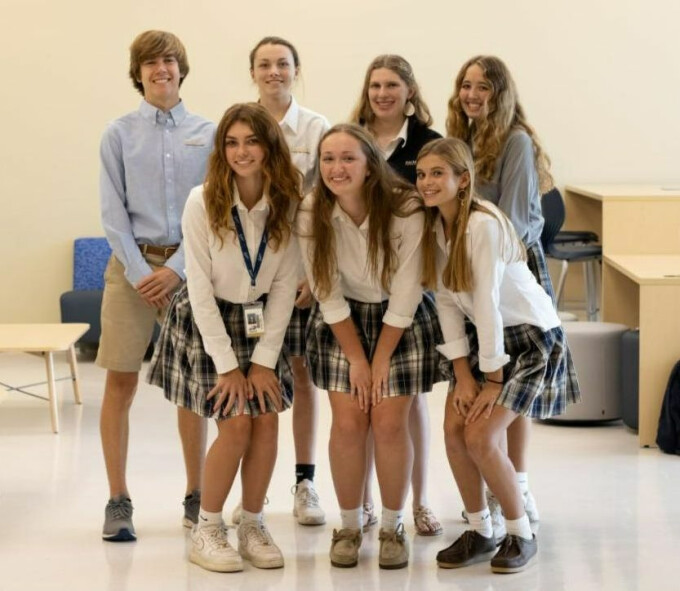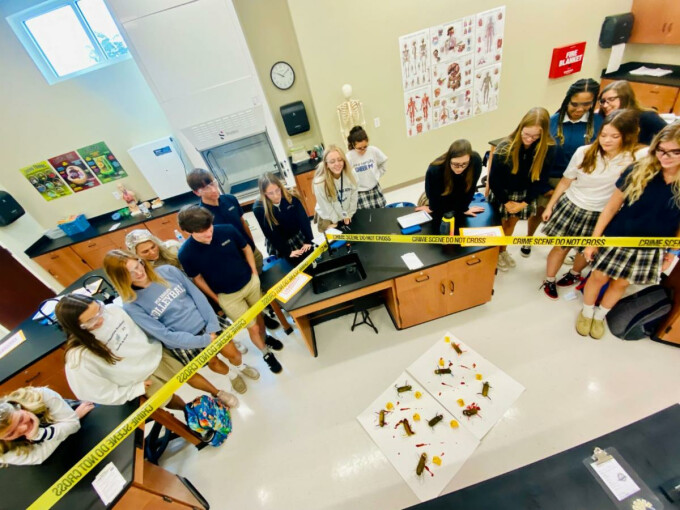Yearbook Team: The Storytelling Of The Year!

Each year at PCA brings about a sense of “new”. A clean slate that is open for all of the year's events, activities, and students to create a story that would leave an impression on PCA, all of which is captured in the school's yearbook “Free Flight”.
This year's team is made up of seven talented and creative students. Co-Editors are Jordan Benfield (11) and Kaila Guyan (11), while staff members include Abby Creech (11), Reagan Murphy (11), Autumn Benton (10), Hans Payne (10), and Ana Tyler (10).
Melanie Rodgers, who has been yearbook advisor for the past four years said, "I am so excited to see what this year’s team comes up. They are a creative group with a ton of fun ideas!”
When asked how the yearbook is put together and created, Rodgers said, “As soon as I teach the students the basic skills of journalistic writing and photography, I step back and let the editors and staff take the reins in regards to theme, design, and layout. I simply act as their guide. I want them to be able to look back at the end of the year, with their book in hand and think 'wow, we created this from a blank slate' and be proud of all their hard work and ideas."
There is no doubt this talented team will create a wonderful visual timeline of our school year for PCA students and parents. Click below to find out more about our yearbook team including their goals for this year's keepsake, and what motivated them to be a part of this amazing effort!

